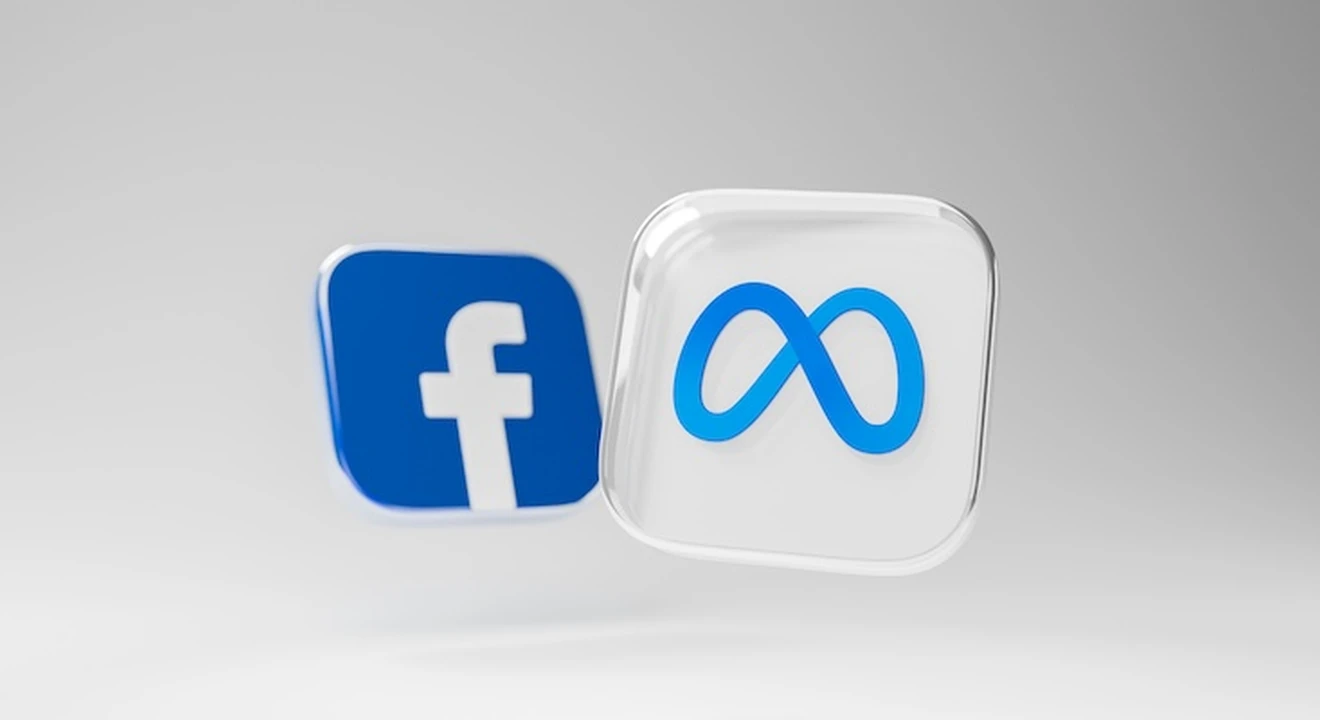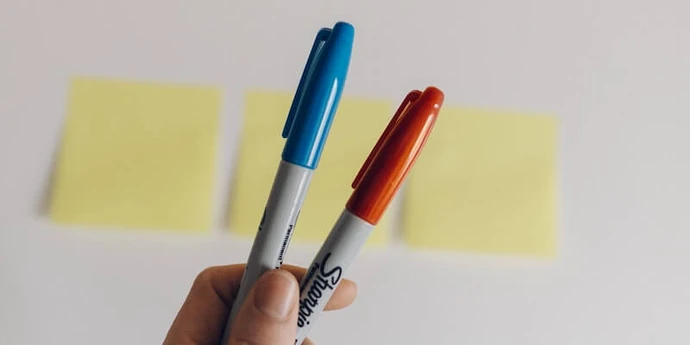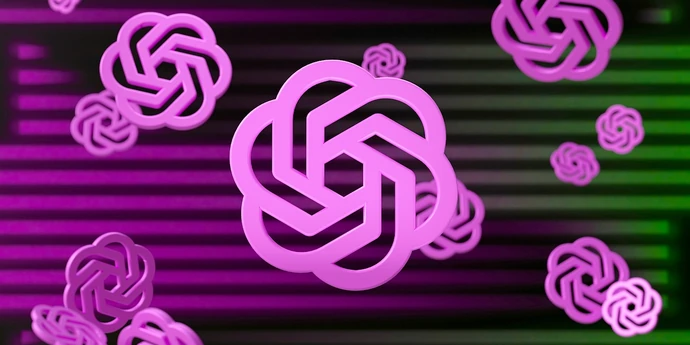Before you even reach the interview loop, you’ll need to get through Meta’s very selective phone screen. Thousands of candidates apply to Meta every year, but only a small percentage make it past this initial stage.
Lucky for you, we’re here to help. We've worked with over 180 ex-Meta interviewers on our platform, who have helped thousands of candidates navigate the Meta interview process from start to finish.
Below, we break down the six critical steps to prepare for phone screen interviews at Meta. Learn them by heart, use the resources we share, and increase your chance of moving forward to the full loop.
- Master the process
- Know the Meta phone screen question types
- Understand how Meta scores your answers
- Know what to expect after your phone screen
- Improve your interviewing skills
- Do mock interviews
Click here to practice 1-on-1 with an ex-Meta interviewer
Let’s get started!
1. Master the process ↑
Before we dive into the phone screen, it’s important to understand where it fits in Meta’s hiring pipeline.
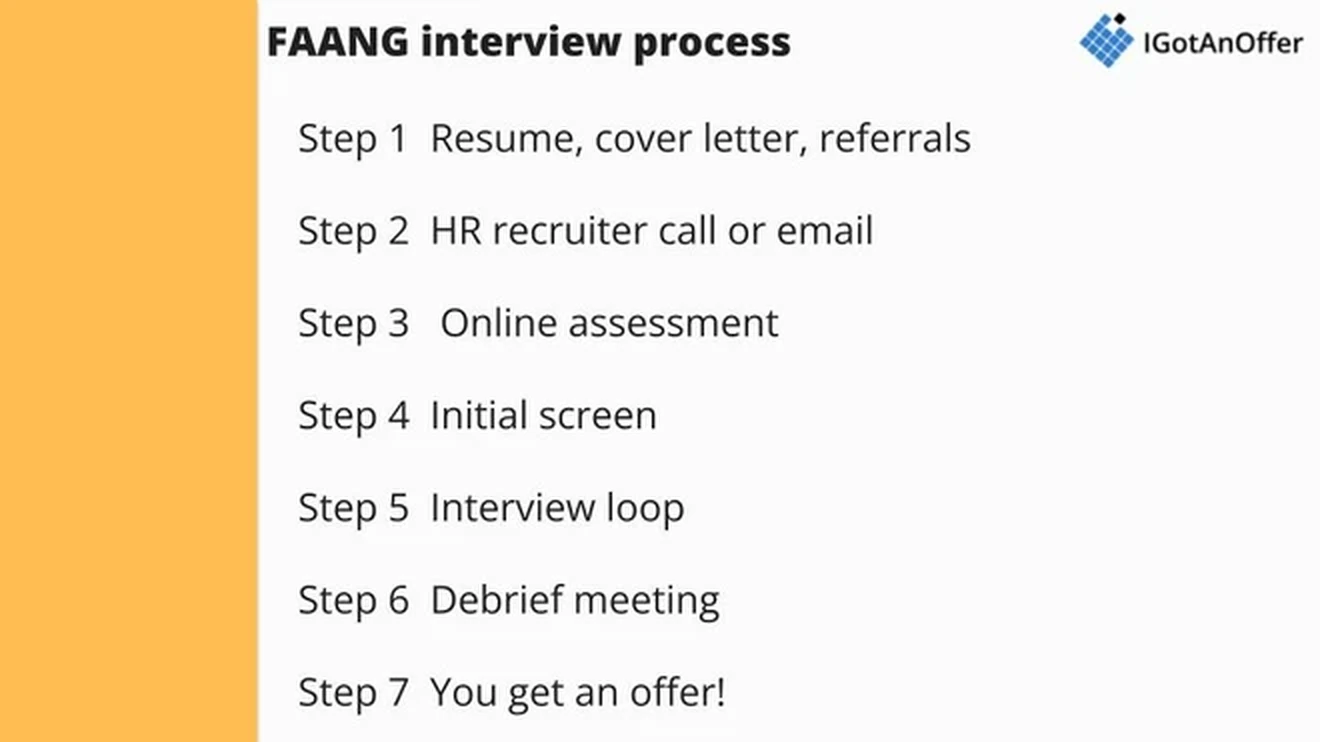
Meta’s interview process has seven steps. The phone screen, sometimes called the technical or initial screen, is your ticket to the onsite, where the process becomes more rigorous.
In this guide, we focus primarily on the phone screen for Meta software engineering interviews. But we’ll also touch briefly on how this stage looks for other positions (product manager, engineering manager, data scientist, etc.).
1.1 What is a Meta phone screen interview?
The Meta phone screen is meant to assess your technical skills, problem-solving abilities, and overall fit within Meta’s core values.
Depending on the role, you may have one or two screening interviews with a hiring manager or future teammate. Most are done over video calls, though some interviewers prefer audio-only.
If you live near a Meta office, you might be invited for an in-person interview, or you can request to do your initial screen onsite. Recruiters are usually happy to accommodate, as it often leads to a better experience for everyone.
Interviewers will dig deeper into your past experience with behavioral and hypothetical questions that test role-specific skills.
Technical roles, such as software engineering, involve coding on a shared code editor, Word document, or a whiteboard if the interview is in person. More on this below.
1.2 What to expect in Meta’s initial phone screens
If you’re applying for a software engineering role, your phone screen will be almost entirely technical. You’ll typically have one or two 45-minute interviews, each led by a Meta engineer.
Most phone screens start with a few behavioral questions, but the majority of the time will be spent on coding. You can expect standard data structures and algorithms (DSA) problems, which we’ll cover in more detail in Section 2.2.
As we mentioned earlier, you’ll be coding in a barebones editor like CoderPad without syntax highlighting or auto-complete, so it’s important to get comfortable coding without those aids.
You can learn more about coding interviews at Meta directly from their engineering team here.
After the initial interview, the interviewer you talked to has 24 hours to submit their ratings and notes on the internal system. If you perform well, you’ll move on to the onsite loop, where the interviews become more in-depth.
1.2.1 Meta phone screens (by role)
We also looked into the process for 10 other Meta roles to give you a sense of what to expect across the board:
- Product managers: You’ll have two 45-minute interviews that focus on product sense and analytical thinking.
- Engineering managers: You’ll have a 45-minute session with an EM where you’ll be discussing your people management and cross-collaboration experience, your technical design and architecture knowledge, and your career goals and motivations as a leader.
- Data scientists: You’ll be asked a few general background questions, as well as SQL, coding, and statistics questions. You’ll be showing your answers on a shared coding platform (e.g., Coderpad.io).
- Research scientists: You’ll be asked to solve one to two LeetCode-style questions in 45 minutes.
- Data engineers: You’ll have a 60-minute tech screen divided into two sections: SQL and coding with Python. For each, you may answer up to five questions depending on your speed.
- Machine learning engineers: You’ll have a 45-minute tech screen with an engineer where you’ll be coding on a simple coding editor (e.g., Coderpad.io) and answer data structures, algorithms, recursions, and binary trees.
- Technical program managers: You’ll have a 45-minute interview with a product TPM, in which you’ll be assessed on your program management, cross-functional leadership, and technical abilities.
- Production engineer: You’ll have two 45-minute interviews where you’ll be asked to code in a simple coding editor and walk through operating systems and debugging in Linux.
- Account managers: You’ll have one interview where you’ll be asked behavioral and background questions that test your client service skills. In some cases, you may have to prepare a case study.
- Product designers: You’ll have a 45-minute interview where you’ll be asked to talk through at least two product design case studies or recent work samples.
If you're preparing for your technical screen, we recommend booking a 1:1 mock interview with ex-Meta interviewers to sharpen your interviewing skills ahead of time.
1.3 Are Meta phone screens hard?
Yes, Meta phone screens are challenging, but they’re designed to be that way. Meta hires from a global talent pool, and the bar is high from the very beginning.
Based on Glassdoor interview reviews, 57% of candidates consider their Meta interviews a positive experience, slightly lower than Amazon, Apple, and Google interviews, but better than Netflix and OpenAI interviews.
Those who rated the interview process positively or neutrally described it as smooth, structured, and straightforward, with helpful and organized interviewers who made the entire process generally pleasant.
On the other hand, candidates who had a negative experience often pointed out how long the process took. Some reported waiting weeks between interviews, receiving minimal updates from recruiters, or even being asked to repeat interviews because interviewers were unsure about them.
In terms of difficulty, many described the interview questions as challenging but good or rewarding. A few candidates who didn’t pass admitted they hadn’t prepared thoroughly enough, while those who received offers often said they had practiced consistently for months.
Interestingly, even candidates who didn’t get the job said they would try again, saying the interview process was a good learning experience overall.
Check out our article on what a real Meta interview experience is like, featuring stories from seven successful candidates we’ve worked with.
2. Know the Meta phone screen question types ↑
Now that you have an idea of how technical phone screens work at Meta, let’s get into the complete list of questions that have been asked in real Meta interviews, according to data from Glassdoor.
Note that this section will focus mainly on questions asked during Meta phone screens for SWE.
As mentioned in Section 1.2, these interviews are primarily focused on coding, with a few behavioral questions at the start.
If you’re curious about Meta phone screens for other roles, feel free to jump to Section 4.3 for links to our role-specific guides.
2.1 Behavioral
We call this part of the process Meta’s “Getting to Know You” interview. It’s where candidates are evaluated on how well they collaborate with cross-functional teams, communicate, take initiative, and work in ambiguous situations.
Pranav, an ex-Meta engineering manager, told us that Meta looks for the following key traits in engineers:
- How good are they at resolving conflicts with their peers, managers, or external teams?
- Do they have a growth mindset? Do they accept feedback openly and work on them to resolve it?
- How well do they deal with ambiguity? How do they bring structure in place when there is none?
- How do they sustain progress despite multiple hurdles?
- How well do they communicate with peers, cross-functional partners, and the team?
Remember, Meta is a bottom-up environment, so interviewers want to see strong levels of autonomy, ownership, and comfort with ambiguity. Come prepared with stories of how you’ve worked through tough situations and moved things forward.
If you're applying for a manager position, you'll also be expected to speak to topics like leading teams, developing talent, and managing day-to-day execution.
Below, we've listed the most frequent behavioral questions that Meta tends to ask in technical phone screens.
Behavioral questions asked in Meta phone screens
- Tell me about yourself.
- Why Meta/Facebook?
- Tell me about a recent/favorite project and some of the difficulties you had.
- Tell me about the greatest accomplishment of your career.
- Tell me about a time when you worked in a team.
- Describe a situation where you had to work with cross-functional teams. How did you ensure alignment?
- Tell me about a time you struggled to work with one of your colleagues.
- Tell me about a time you had to give difficult feedback to a coworker/teammate.
- Tell me about a time you had to resolve a conflict in a team.
- Tell me about a time you were given constructive feedback.
- Tell me about a time you had to step up and take responsibility for others.
- Tell me about a time you struggled in one of your software projects.
- Tell me about a time when someone pushed back your ideas/approaches at work.
- Tell me about your worst boss and why they were bad.
- What is your most challenging project?
- What were some excellent collaborations you’ve had?
- How do you handle ambiguity in projects?
- How have you dealt with a timeline issue in the past?
- Have you ever faced a project where the requirements changed mid-way? How did you handle it?
For more information, check out our articles on the Meta behavioral interview and the most-asked behavioral questions across FAANG, complete with sample answers.
2.2 Coding
Now, let’s get into the coding interview questions you can expect at a Meta phone screen.
According to Meta SWE candidate reports on Glassdoor, you’ll typically get easy-to-hard LeetCode-style coding problems during your interview. The difficulty level goes up as you advance in the interview process.
So, you can expect that coding questions at the phone screen level probably won’t be as difficult as those in the full interview loop, likely ranging from easy to medium.
Some candidates on Glassdoor also mention being asked Meta-tagged questions on LeetCode, so be sure to review those as well.
Regardless, it's always best to be fully prepared.
Based on our analysis of the 50 most recent coding questions reported on Glassdoor, here are the most common question types and how frequently each topic gets asked:
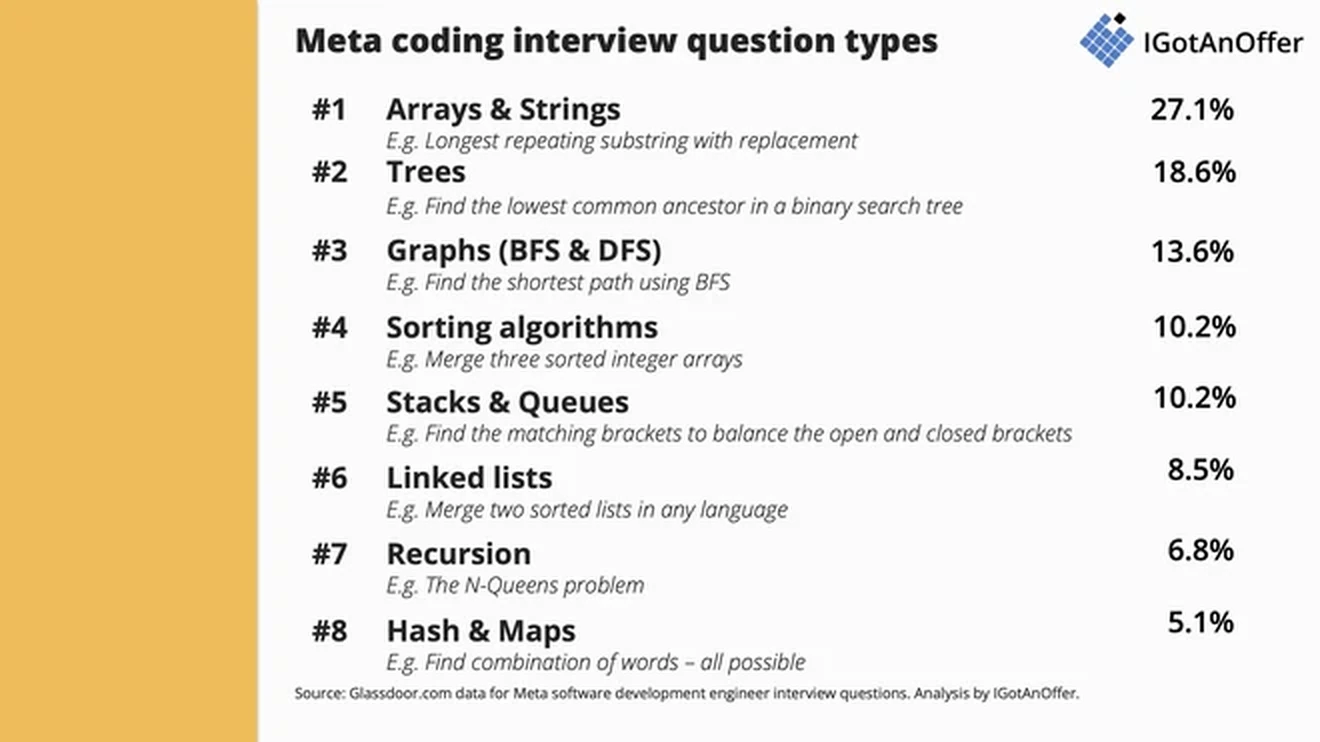
- Arrays & strings 27.1%
- Trees 18.60%
- Graphs (BFS & DFS) 13.60%
- Sorting algorithms 10.20%
- Stacks & queues 10.20%
- Linked lists 8.50%
- Recursion 6.80%
- Hash & maps 5.10%
Let’s take a look at coding questions asked in Meta phone screens from real candidate reports.
Coding questions asked in Meta phone screens
- Longest repeating substring with replacement. (Solution)
- Find the number of islands in a 2d array. (Solution)
- Given a string of an arithmetic expression, composed of numbers, '+' and '*', calculate the result. (Solution)
- Given an array nums of n integers where n > 1, return an array output such that output[i] is equal to the product of all the elements of nums except nums[i]. (Solution)
- Given a non-empty string s, you may delete at most one character. Judge whether you can make it a palindrome. (Solution)
- Implement next permutation, which rearranges numbers into the lexicographically next greater permutation of numbers. (Solution)
- Given a string S and a string T, find the minimum window in S which will contain all the characters in T in complexity O(n). (Solution)
- Given an array of strings strs, group the anagrams together. (Solution)
- Given a string s containing just the characters '(', ')', '{', '}', '[' and ']', determine if the input string is valid. (Solution)
- Given an array nums of n integers, are there elements a, b, c in nums such that a + b + c = 0? Find all unique triplets in the array which gives the sum of zero. (Solution)
Check out our guides on array interview questions and string interview questions to learn more about the topics.
- Find the lowest common ancestor in a binary search tree. (Solution)
- Write a function that balances a BST given a root node. (Solution)
- Flip a binary tree. (Solution)
- Given the root node of a binary search tree, return the sum of values of all nodes with values between L and R (inclusive). (Solution)
- Given a Binary Tree, convert it to a Circular Doubly Linked List (In-Place). (Solution)
- Implement an iterator over a binary search tree (BST). Your iterator will be initialized with the root node of a BST. (Solution)
- Given a binary tree, you need to compute the length of the diameter of the tree. (Solution)
- Serialize and deserialize a binary tree. (Solution)
- Given a binary tree, find the maximum path sum. (Solution)
- Given a sorted dictionary (array of words) of an alien language, find the order of characters in the language. (Solution)
Click here to learn more about tree interview questions.
- Find the shortest path using BFS. (Solution)
- Find the number of islands in a 2D array. (Solution)
- Given a reference of a node in a connected undirected graph. Return a deep copy (clone) of the graph. (Solution)
- Check whether a given graph is Bipartite or not. (Solution)
Check out our articles on graphs, DFS, and BFS to learn more about the topics.
- Merge three sorted integer arrays. (Solution)
- Bucket sort a list into “small”, “medium”, and “large.” (Solution)
- We have a list of points on the plane. Find the K closest points to the origin (0, 0). (Solution)
- Given two arrays, write a function to compute their intersection. (Solution)
- Given an array of meeting time intervals consisting of start and end times [[s1,e1],[s2,e2],...] find the minimum number of conference rooms required. (Solution)
Click here to learn more about sorting algorithm questions.
- Basic Calculator IV: Given an expression such as expression = "e + 8 - a + 5" and an evaluation map such as {"e": 1} (given in terms of evalvars = ["e"] and evalints = [1]), return a list of tokens representing the simplified expression, such as ["-1*a","14"]. (Solution)
- Find the matching brackets to balance the open and closed brackets. (Solution)
- Implement the following operations of a queue using stacks. Note: see more details at the following link. (Solution)
Click here to learn more about stacks and queues interview questions.
- Merge two sorted lists in any language. (Solution)
- Reverse linked list at the kth position. (Solution)
- A linked list is given such that each node contains an additional random pointer that could point to any node in the list or null. Return a deep copy of the list. (Solution)
- Given a singly linked list L: L0?L1?…?Ln-1?Ln, reorder it to: L0?Ln?L1?Ln-1?L2?Ln-2?… (Solution)
Click here to learn more about linked list interview questions.
Read our Meta coding interviews guide to learn more about each type of question. Then, we recommend practicing with this list of 47 coding interview examples in addition to those listed above.
3. Understand how Meta scores your answers ↑
Meta’s scoring rubrics aren’t publicly available, but their official initial interview guide offers a good look at what interviewers are trained to evaluate.
During your technical phone screen, your interviewer is thinking about how your skills and experience could contribute to their team. They also want to know whether you show strong problem-solving, communication, and technical skills.
Here’s how Meta says they assess candidates:
- Communication. Are you asking for requirements and clarity when necessary, or are you just diving into the code? Your initial tech screen should be a conversation, so don’t forget to ask questions.
- Problem-solving. We’re evaluating how you comprehend and explain complex ideas. Are you providing the reasoning behind a particular solution? Developing and comparing multiple solutions? Using appropriate data structures? Speaking about space and time complexity? Optimizing your solution?
- Coding. Can you convert solutions to executable code? Is the code organized, and does it capture the right logical structure?
- Verification. Are you considering a reasonable number of test cases or coming up with a good argument for why your code is correct? If your solution has bugs, are you able to walk through your own logic to find them and explain what the code is doing?
If you want more hands-on practice, you can schedule a 1:1 interview coaching session with ex-FAANG coaches who can help ensure you meet Meta’s rigorous criteria.
4. Know what to expect after your phone screen ↑
What happens after the initial technical interview can feel like a bit of a black box.
In this section, we’ll walk you through what to expect, including how long it might take to hear back, what typical recruiter communication looks like, and what’s coming if you make it to the next round.
4.1 How long does Meta take to provide updates after an interview?
Some Reddit users claim recruiters are expected to respond within 24 to 48 hours after the phone screen, though this isn’t always the case. Many candidates report waiting anywhere from two weeks to over a month for an update.
4.2 What does a typical Meta recruiter response look like after a phone screen?
If you pass, recruiters typically email you first, then follow up with a call to discuss the next steps, according to users on Blind. If you don’t pass, expect a standard rejection email with no additional details.
Meta does not provide specific feedback after rejections, citing legal reasons, as shown in this LinkedIn post from a candidate.
4.3 What happens next if you pass the phone screen?
The next step after your phone screen is the onsite, or “full loop” as Meta calls it. It’s the longest and most daunting part of Meta’s interview process.
These may be conducted in person or via video call. You’ll go through three to six interviews, each lasting 45 to 60 minutes.
Your recruiter will brief you on what to expect for each round, but essentially, you can expect a more in-depth version of your initial screen, some more behavioral questions, and more role-related knowledge questions.
If you’re interviewing for a specific role, we have created in-depth guides to the interviews for top Meta roles. There you’ll find a breakdown of the interview loop specific to the roles you’re applying for, plus some example questions we’ve gathered from real candidate reports on Glassdoor.
- Meta software engineer interview guide
- Meta engineering manager interview guide
- Meta product manager interview guide
- Meta product marketing manager interview guide
- Meta rotational product manager interview guide
- Meta data engineer interview guide
- Meta data scientist interview guide
- Meta research scientist interview guide
- Meta machine-learning engineer interview guide
- Meta production engineer interview guide
- Meta front-end engineer interview guide
- Meta technical program manager interview guide
- Meta program manager interview guide
- Meta account manager interview guide
- Meta product designer interview guide
- Meta E5 interview guide
- Meta E6 interview guide
- Meta research engineer interview guide
5. Improve your interviewing skills ↑
Now that you know what questions to expect and what happens after the phone screen, let’s focus on how to prepare.
As you’ve seen from the previous sections, Meta phone screens, especially for SWE roles, are highly technical, with a few behavioral questions thrown in.
On top of that, the performance bar at Meta is high. Some people even go as far as quitting their jobs to prepare full-time. That’s extreme and not something we recommend, but it shows how seriously many candidates take the process.
We’ve coached more than 15,000 people for interviews since 2018. Below is our five-step prep plan to help you get ready for the phone screen.
5.1 Learn about Meta
Most candidates fail to do this. But before investing tens of hours preparing for an interview at Meta, you should take some time to make sure it's the right company for you.
Meta is prestigious, and it's therefore tempting to ignore that step completely. But in our experience, the prestige in itself won't make you happy day-to-day. It's the type of work and the people you work with that will.
If you know engineers who work at Meta or used to work there, it's a good idea to talk to them to understand what the culture is like. In addition, we would recommend reading the following:
- Meta's 6 core values
- Facebook’s hacker culture (by Mark Zuckerberg, via Wired)
- Meta annual reports and strategy presentations (by Meta)
- Meta's approach to tech trends (by CB Insights)
- Meta org culture analysis (by Panmore Institute)
- Engineering at Meta
- Meta fact sheet (by IGotAnoffer)
5.2 Don’t jump straight to answering
Answering immediately after you hear or read the question is a huge red flag to interviewers.
For many interviewers, a candidate’s collaboration and communication skills are just as important, if not more important, than a candidate’s technical capabilities.
Jumping into your answer without asking clarifying questions or discussing possible approaches with your interviewer signals that 1) you haven’t thought through the answer and 2) you won’t collaborate with your interviewer. Both are bad signs for how you will work with the team that you are applying to join.
In a coding interview, you’ll want to start by discussing your approach before coding. Writing pseudocode is an excellent way to outline your plan and show your work to the interviewer.
This tip is relevant for technical questions, but you can also apply it to behavioral questions. For example, if you have several examples, you might want to ask your interviewer which story they prefer to hear.
5.3 Learn a consistent method for answering behavioral questions
When answering behavioral questions, you’ll want to make sure your answer only includes necessary information. Practice setting up your answer in 30 seconds or less, cutting down any unnecessary or vague details.
An easy way to achieve this is to use a step-by-step method to tell your stories.
The STAR method (Situation-Task-Action-Result) is a popular approach for answering behavioral questions because it’s easy to remember. You may have already heard of it.
However, we’ve found that candidates often find it difficult to distinguish the difference between steps two and three or task and action. Some also forget to include lessons learned in the results step, which is especially crucial when discussing past failures.
So, we’ve developed the IGotAnOffer method (SPSIL: Situation-Problem-Solution-Impact-Lessons) to correct some of the pitfalls we’ve observed when using the STAR method.
The IGotAnOffer SPSIL Method
- Situation: Start by giving the necessary context of the situation you were in. Describe your role, the team, the organization, the market, etc. You should only give the minimum context needed to understand the problem and the solution in your story. Nothing more.
- Problem: Outline the problem you and your team were facing.
- Solution: Explain the solution you came up with to solve the problem. Step through how you went about implementing your solution, and focus on your contribution over what the team / larger organization did.
- Impact: Summarize the positive results you achieved for your team, department, and organization. As much as possible, quantify the impact.
- Lessons: Conclude with any lessons you might have learned in the process.
5.4 Adapt to follow-up questions
Don’t be alarmed if your interviewer asks follow-up questions; this is perfectly normal. Listen carefully to the way your interviewer is asking these questions, as there will often be a subtle clue about the specific skills they’re looking to assess from the next part of your answer.
5.5 Practice by yourself
As we've outlined above, you'll have to prepare for two different categories of questions ahead of your Meta phone screen.
In this article, we've recommended various deep-dive articles that will help you prepare for each question category. Here's the complete list, plus a couple of extra we think could be useful.
- Official Meta guides:
- Meta initial interview guide
- Meta software engineer interview Q&A
- Cracking the Meta coding interview (approach and problem walkthrough)[password: FB_IPS]
- Behavioral questions: Meta behavioral interview questions, most-asked behavioral questions across FAANG
- Coding:
- General: Coding interview prep, How to get better at coding interviews (with tips from FAANG interviewers), Meta coding interview
- Data structure & algorithm (DSA): The ultimate data structure interview question list, more coding interview examples
- Meta-recommended resources: Topcoder, GeeksQuiz, GitHub’s DSA coursework (with solutions)
- Level-specific Meta engineer guides
Many candidates on Glassdoor also recommend searching for Meta-tagged LeetCode problems (ranging from easy to difficult levels) to practice with.
If you’re interviewing for a specific role, you can also check out our in-depth guides to the interviews for top Meta roles in Section 4.3.
One of the main challenges of technical screens is that you have to communicate what you are doing as you are doing it. Having to think, code, and communicate your thoughts to the interviewer all at the same time is not easy.
With that in mind, don't let the first interview you do be the real thing. Instead, we highly recommend getting some mock interviews under your belt.
If you've already interviewed at Meta and received a rejection, don't worry. You can always bounce back and try again. Learn more tips on how to move forward with our Meta interview rejection guide.
6. Do mock interviews ↑
6.1 Practice with peers
If you have friends or peers who can do mock interviews with you, that's an option worth trying. It’s free, but be warned, you may come up against the following problems:
- It’s hard to know if the feedback you get is accurate
- They’re unlikely to have insider knowledge of interviews at your target company
- On peer platforms, people often waste your time by not showing up
For those reasons, many candidates skip peer mock interviews and go straight to mock interviews with an expert.
6.2 Practice with experienced Meta interviewers
In our experience, practicing real interviews with experts who can give you company-specific feedback makes a huge difference.
Find a Meta interview coach so you can:
- Test yourself under real interview conditions
- Get accurate feedback from a real expert
- Build your confidence
- Get company-specific insights
- Learn how to tell the right stories, better
- Save time by focusing your preparation
Landing a job at a big tech company often results in a $50,000 per year or more increase in total compensation. In our experience, three or four coaching sessions worth ~$500 will make a significant difference in your ability to land the job. That’s an ROI of 100x!
Click here to book mock interviews with experienced Meta ex-interviewers.






